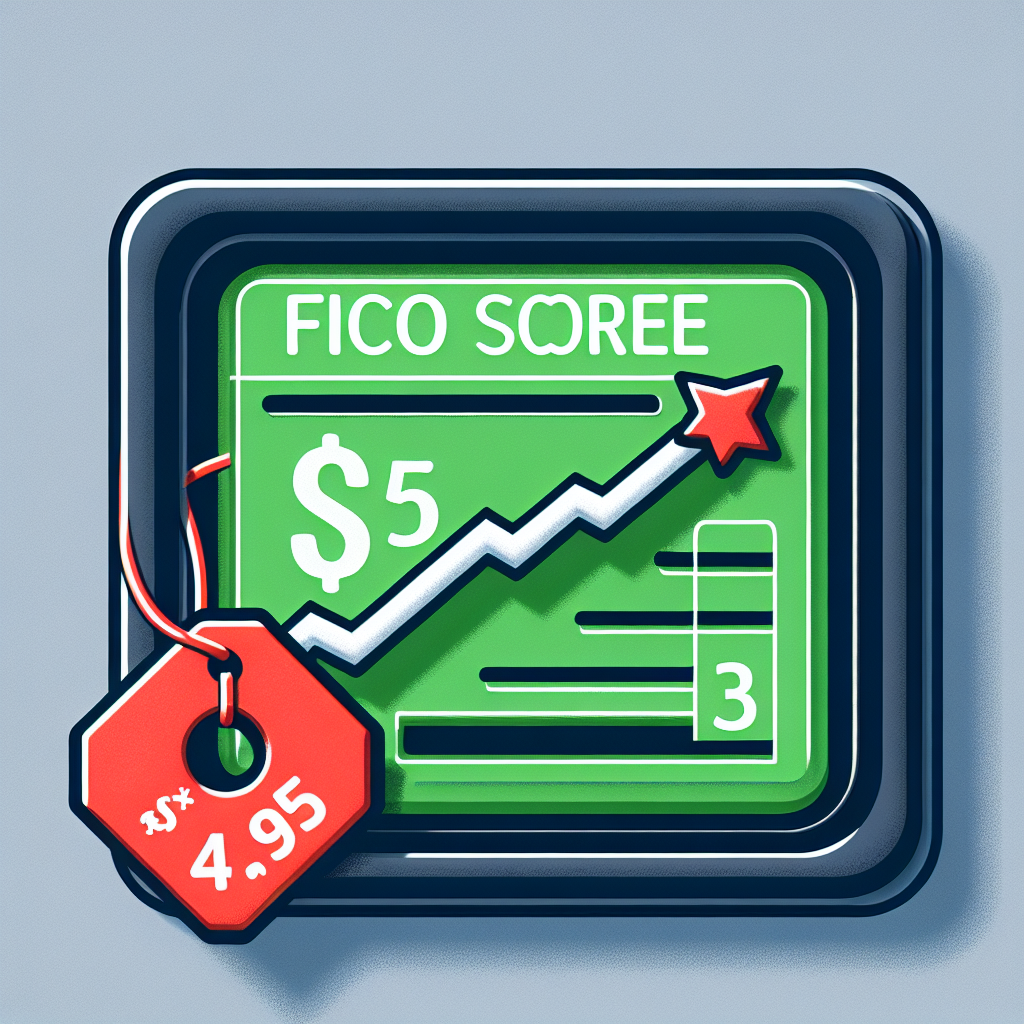FICO Increases Score Price to $4.95: What It Means for Consumers
In a recent move that has caught the attention of consumers and financial experts alike, FICO, the company behind the widely used credit scoring model, has announced an increase in the price of accessing individual FICO scores to $4.95. This change, while seemingly minor, has significant implications for consumers, lenders, and the broader financial landscape. This article delves into the reasons behind this price hike, its potential impact, and what consumers can do to navigate this new financial terrain.
Understanding the FICO Score
The FICO score is a critical component of the financial ecosystem, serving as a key indicator of an individual’s creditworthiness. It is used by lenders to assess the risk of lending money or extending credit. The score ranges from 300 to 850, with higher scores indicating better creditworthiness. Factors influencing the FICO score include payment history, amounts owed, length of credit history, new credit, and types of credit used.
Reasons Behind the Price Increase
FICO’s decision to raise the price of accessing credit scores can be attributed to several factors:
- Increased Operational Costs: As with many businesses, FICO faces rising operational costs, including technology upgrades and data security measures, which necessitate adjustments in pricing.
- Enhanced Features: The company has been investing in improving the accuracy and comprehensiveness of its scoring models, which may have contributed to the need for a price increase.
- Market Dynamics: The financial services industry is evolving rapidly, with new players and technologies emerging. FICO’s pricing strategy may be a response to these changing market dynamics.
Impact on Consumers
The increase in the cost of accessing FICO scores has several implications for consumers:
- Budgeting Concerns: For individuals who regularly monitor their credit scores, the additional cost could add up over time, impacting personal budgets.
- Access to Credit Information: Some consumers may be discouraged from checking their scores frequently, potentially leading to less informed financial decisions.
- Alternative Options: Consumers might seek alternative ways to access their credit information, such as free credit monitoring services or credit card companies that offer free score updates.
Case Studies and Statistics
To understand the broader impact of this price change, consider the following examples and statistics:
- A study by the Consumer Financial Protection Bureau (CFPB) found that regular monitoring of credit scores can lead to improved financial behavior, such as timely bill payments and reduced debt levels.
- In a survey conducted by Credit Karma, 60% of respondents indicated that they check their credit scores at least once a month, highlighting the importance of affordable access to credit information.
- Case studies of individuals who have successfully improved their credit scores often cite regular monitoring as a key factor in their financial turnaround.
Strategies for Consumers
Despite the price increase, consumers can take several steps to manage their credit effectively:
- Utilize Free Resources: Many financial institutions offer free credit score monitoring as part of their services. Take advantage of these offerings to stay informed without incurring additional costs.
- Focus on Financial Health: Prioritize maintaining a healthy credit profile by paying bills on time, reducing debt, and avoiding unnecessary credit inquiries.
- Educate Yourself: Understanding the factors that influence your credit score can empower you to make informed decisions that positively impact your financial future.
Conclusion
The increase in the price of accessing FICO scores to $4.95 is a reflection of broader trends in the financial services industry. While it presents challenges for consumers, it also underscores the importance of staying informed about one’s credit health. By leveraging free resources, focusing on financial wellness, and educating themselves about credit scoring, consumers can navigate this change effectively. Ultimately, maintaining a strong credit profile remains a crucial aspect of financial success, regardless of the cost of accessing one’s credit score.



